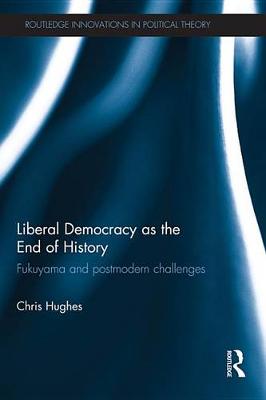Francis Fukuyama claims that liberal democracy is the end of history. This book provides a theoretical re-examination of this claim through postmodernist ideas.
The book argues that postmodern ideas provide a valuable critique to Fukuyama’s thesis, and poses the questions: can we talk about a universal and teleological history; a universal human nature; or an autonomous individual? It addresses whether postmodern theories - concerning the movement of time, what it means to be human, and what it means to be an individual/subject - can be accommodated within a theory of a history that ends in liberal democracy.
The author argues that incorporating elements of postmodern thought into Fukuyama’s theory makes it possible to produce a stronger and more compelling account of the theory that liberal democracy is the end of history. The result of this is to underpin Fukuyama’s theory with a more complex understanding of the movement of time, the human and the individual, and to show that postmodern concepts can, paradoxically, be used to strengthen Fukuyama’s theory that the end of history is liberal democracy. The book will be of interest to students and scholars of political theory, postmodernism and the work of Francis Fukuyama.
- ISBN13 9781136624933
- Publish Date 20 February 2012 (first published 1 January 2011)
- Publish Status Active
- Publish Country GB
- Publisher Taylor & Francis Ltd
- Imprint Routledge
- Format eBook
- Pages 228
- Language English
